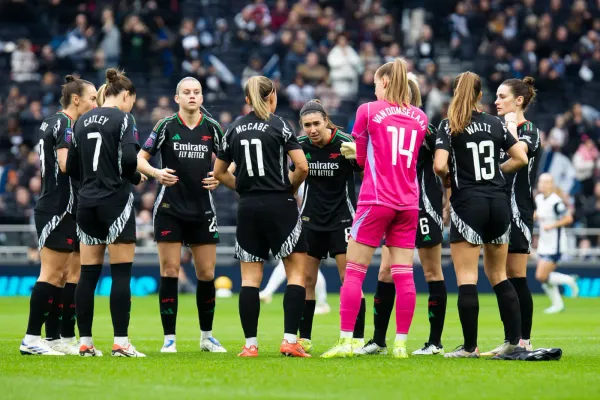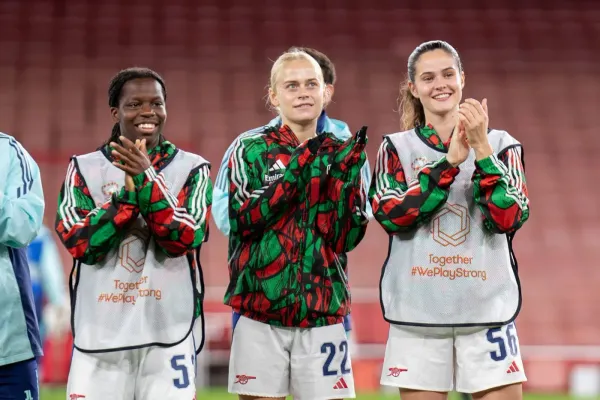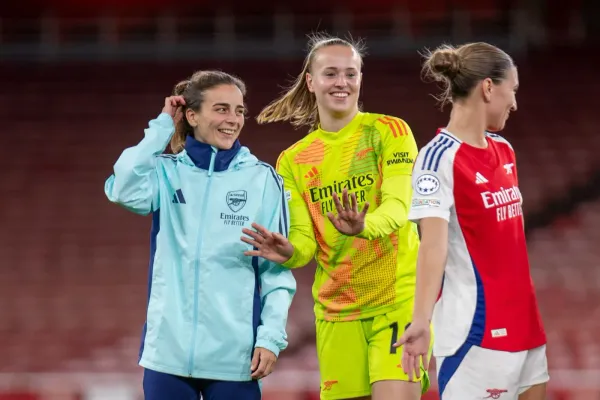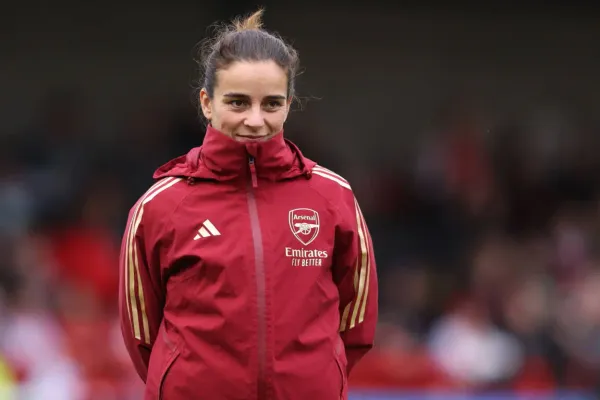Pelova and over again
When a player becomes undroppable
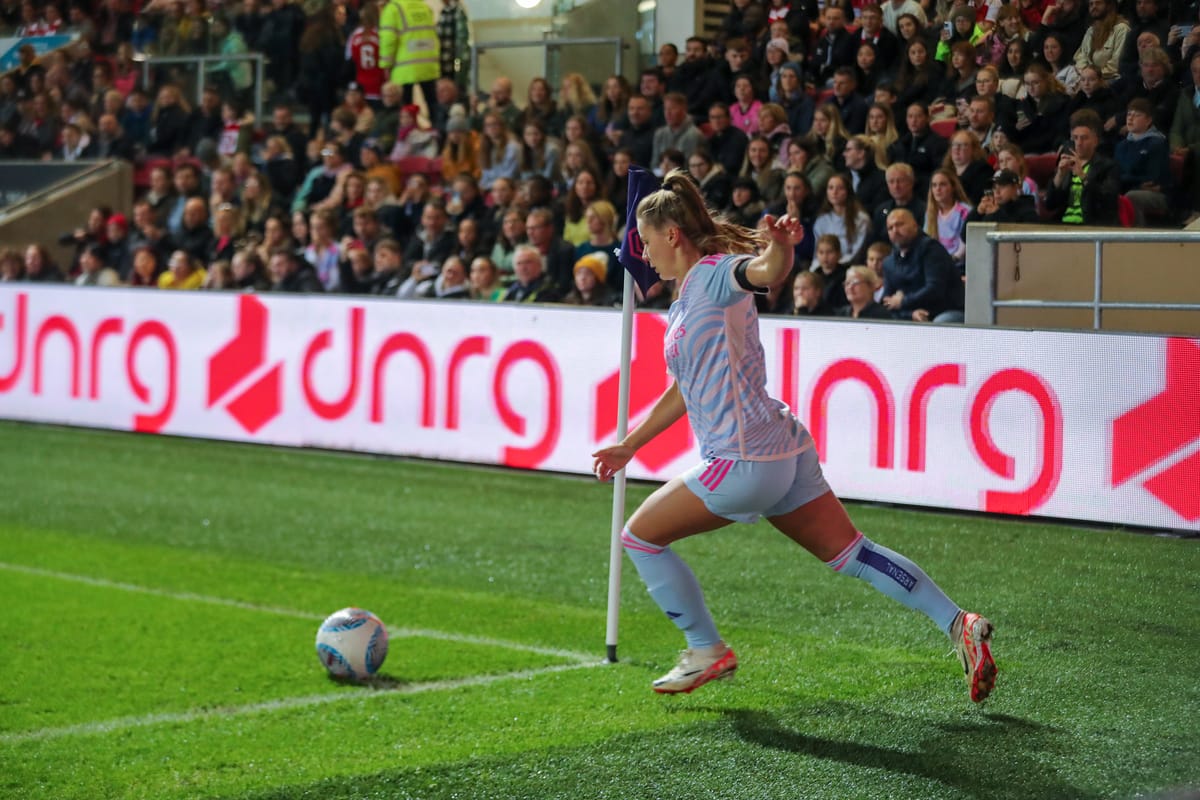
At the back end of last season, I asked Jonas Eidevall whether he had a long-term position in mind for Victoria Pelova. At that point, she had played as a six, an eight, a ten and a right forward and she had only signed for the club in January. Pelova’s versatility is a key skill but it already looked like she was a player that just had to be in the team, by hook or by crook.
Eidevall gave a very interesting answer which made me think very differently about how coaches think about squad building. “It is probably going to be like it was with Frida (Maanum). Where we will see in the coming periods where Victoria’s strengths will really flourish into one position. That is why it is so interesting working with players to see where you can work out those details.”
He expanded his thinking when talking about how Maanum carved out her place in the team. “I told her, ‘if you keep going like this, you are going to play, it will be impossible not to play you.’ When I see this in a player I want to play that player all the time. I think when you see Frida in Sweden, you saw she had a great shot but she didn’t score many goals. When you see it from the statistical perspective.
“That is something we could have held against her when we looked at her in the number 10 position because you ask whether that would contribute enough points for the team. That is where you need to look at the potential when you work with young players, you have to see the qualities.” In essence, Eidevall’s modus operandi with Pelova, and Maanum, is to play them and see best where they fit in later.
He didn’t necessarily see Maanum as a 10 but he played her there and it worked, so he kept her there. Something similar is happening with Victoria Pelova, all her appearances this season have been in central midfield, her preferred position. It is not really about which position Pelova plays, just the fact that she is elbowing her way into the team and making herself undroppable.
Pelova’s qualities in central midfield are so interesting because she offers something different from that position. Wälti and Little provide structure and continuity, they are two experienced, world-class players who have played together for a long time. We saw the value of this in the opening goal against Chelsea, where Little and Wälti calmly combine on the edge of their own area to create the counter-attack that leads to Mead’s goal.
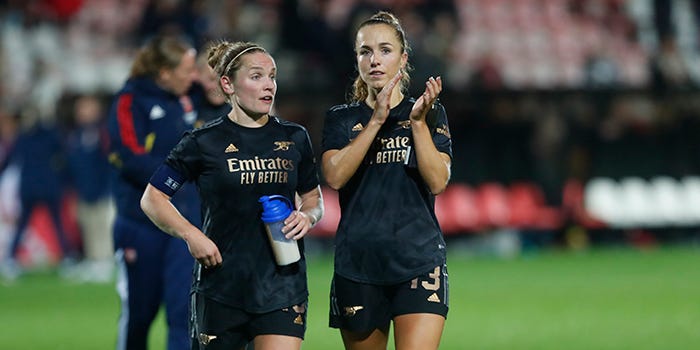
I think there were periods of the Brighton game last month where Arsenal didn’t take care of the ball well and they were really missed. They regulate the temperature of games. But Pelova adds something different to the mix. She is not content with playing in front of opponents or probing them, she wants to kick the door down.
This is a player who thrives on running with the ball road runner style, twisting away from the opposition at light speed, clashing and colliding with them. Pelova is a player who loves to feel the breath of an opponent on her neck and that provides a different, complementary set of attributes to the careful, wise play of Little and Wälti. If Little is the spaghetti and Wälti is the Bolognese, Pelova is the industrial strength jalapeno in the sauce.
Arsenal have a similar asymmetry in the wide positions, where Foord holds the width and carefully sizes up her full-back, like someone constructing a matchstick house. Mead, meanwhile, is more a whirling dervish, demanding the ball first time, driving at her full-back and shooting at goal. Teams need this sense of balanced imbalance and Pelova is a player that Jonas Eidevall is finding impossible to ignore with her ability to wriggle and twist away from crowd scenes. As Eidevall said after the Chelsea game, ‘By God, she runs and that is so important,.’
Pelova is earning cult hero status in the stands too. In women’s football, there is much more of a focus on player personalities than in men’s football. Fans really connect with player character and foibles- think Lia Wälti and her obsessive tidying of leaves in her back garden, which has become a touchstone between player and fans. Pelova has a fun personality that really connects with the fan base.
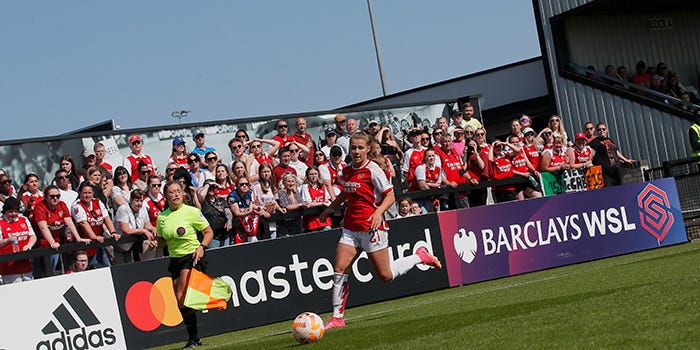
When I first interviewed her in April, she asked me off mic if her English was ok, as lots of Dutch people who speak pitch perfect English tend to do. I spoke with her a little about my own struggles with learning Portuguese. “Oh, Rafa taught me a phrase in Portuguese,” she laughed. “Vai tomar no cu.” (This, dear reader, means “go fuck yourself.”)
The player was a junior chess champion in her native Netherlands and has a master’s degree in applied mathematics. It is clear she is very intelligent and she comes across as fun in her interviews. These things matter to women’s football fans and that has, undoubtedly, contributed to Pelova’s star rising with the supporters (as well as her performances, obviously). For Jonas Eidevall, Victoria Pelova has arrived and in a crowded squad, he has made space for her in the team because it was becoming impossible not to.

